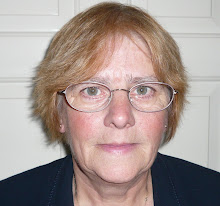I've used The listening Programme with lots of children with no label, underachieving or,with labels such as dyslexia, dyspraxia, Autism, ADHD, dyscalculia and Down Syndrome or other. I have used it with children from nursery upward to adults in senior years. It has helped all of those with an auditory difficulty (not deafness). They can use it to improve ability to recognise sounds in words, to help them shut out extraneous noise and improve concentration. When the perception of sounds is improved it is much easier to understand what is said and so remember it, it is quicker and requires less effort. If in school, improvements are soon noted and, the child then receives positive reinforcement for their efforts. This increases motivation and an upward spiral is created
In the work I did on Down Syndrome with Caroline Newton we found that those in contact with the children, noted the improved communication, between children and peers in particular, following use of The Listening Programme. This is excellent as Oral communication is an essential tool needed for all in independent life.
Just recently I extended the work with Down Syndrome to accommodate a young woman, late twenties. The parents recorded the changes they saw. I could not really find suitable standardized tests for this lady so we continued anyway. and Mum wrote a diary.
The young lady enjoyed listening to the modified music over the ten week period. For the first 6 weeks no change was seen. Then she suddenly seemed much more confident. Her college tutor rang to say how pleased she was with the changes in communication with this lady (She did not know of the input of the programme). The young lady had been a reluctant talker in a group and there had been a new intake and, it was this young lady who was talking , guiding and generally helping the new members to settle in and take part in activities. Mother also noted how much better she was coping in other social settings too.
I have not got test scores to measure this, or matched test, control or placebo subjects, just a happier young woman getting on better with others and being able to communicate more successfully. This improvement has been matched across the age groups. The joy of this input for parents of younger children is that it is not difficult to put in because, they have enough to do already and, this young lady shows it is never too late to help.
Caroline and I keep adding to database of work with Down Syndrome and we keep getting the same positive responses. Oral communication is vital for The Down population, now going on to live independent lives. Let us give all the help we can.
Wednesday, 19 December 2012
Subscribe to:
Comments (Atom)
